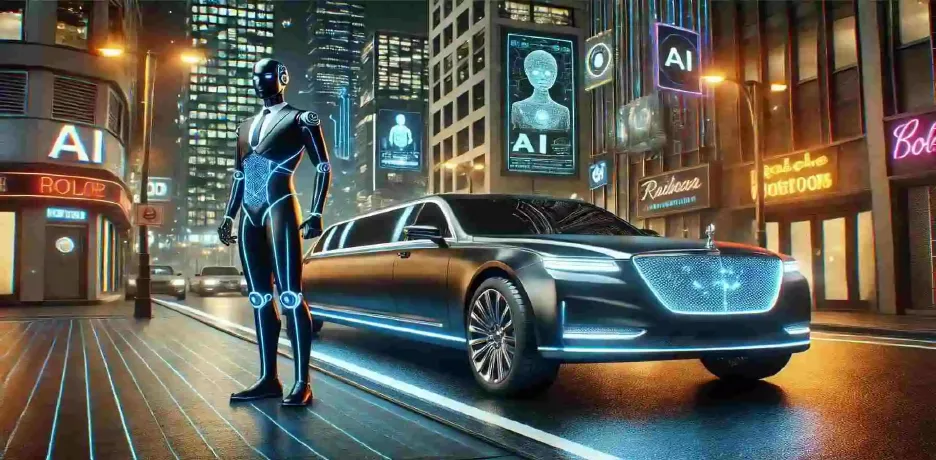Conversational AI in Transportation: The Future of Mobility

The transportation industry has been undergoing a major digital transformation, with businesses leveraging cutting-edge technologies to enhance customer experience and operational efficiency. One of the most significant advancements in this space is Conversational AI, which is revolutionizing how transportation companies interact with customers.
From booking rides to handling customer inquiries, an AI voice bot can streamline communication and improve service quality. Companies like Elite Limo have successfully integrated Monobot into their operations, allowing customers to schedule rides, book wine tours, city tours, and rental services seamlessly. This technology ensures faster, more efficient, and customer-friendly interactions.
The Role of Conversational AI in Transportation
The demand for seamless and efficient transportation services has never been higher. Whether it’s ride-hailing, chauffeur services, logistics, or public transportation, companies must provide prompt and hassle-free solutions. This is where AI chat bots with voice are making a difference.
1. Effortless Ride Booking and Scheduling
Gone are the days when customers had to call a service provider or manually fill out forms to book a ride. With conversational AI voice bots, scheduling a ride is as easy as having a conversation. These AI-powered assistants can:
Understand and process ride requests instantly
Provide fare estimates based on distance and time
Offer multiple ride options and availability details
Confirm bookings and send real-time updates
This has reduced the workload for human agents while improving response times and customer satisfaction.
2. 24/7 Customer Support and Inquiries
Customer inquiries in the transportation industry can be time-sensitive, especially for services like airport transfers or emergency bookings. An AI voice bot ensures that customers receive instant assistance at any time of the day, without the need for human intervention. These chatbots can:
Provide answers to FAQs about fares, availability, and routes
Handle changes or cancellations in bookings
Assist with lost-and-found requests
Offer personalized recommendations based on user preferences
With AI-powered assistance, transportation companies can reduce call center costs while maintaining high-quality customer service.
3. Enhancing Fleet Management and Driver Coordination
Beyond customer service, Conversational AI also plays a crucial role in internal operations. Fleet managers can use AI-driven assistants to:
Monitor real-time vehicle status and availability
Assign rides to drivers efficiently
Track fuel consumption and maintenance schedules
Receive alerts on traffic conditions and rerouting suggestions
By automating these processes, companies can optimize resources, reduce operational costs, and ensure a smoother ride experience for customers.
4. Personalization and Customer Retention
One of the most powerful aspects of AI chat bots with voice is their ability to personalize interactions. Based on past bookings and preferences, AI assistants can:
Suggest preferred vehicle types or drivers
Offer loyalty discounts and promotions
Recommend additional services such as guided tours or special event packages
This level of personalization fosters customer loyalty and encourages repeat bookings, ultimately boosting revenue for transportation businesses.
Why Transportation Companies Should Adopt Conversational AI
The advantages of implementing conversational AI voice bots in the transportation sector are clear. Here’s why more companies should consider adopting this technology:
Speed and Efficiency: AI-powered bots can handle multiple inquiries simultaneously, reducing wait times and improving response accuracy.
Cost Savings: Automating customer interactions and fleet management tasks minimizes the need for large customer support teams.
Scalability: AI chatbots can manage an increasing number of users without additional costs, making them ideal for growing businesses.
Improved Customer Experience: Faster response times, personalized services, and hassle-free bookings enhance overall satisfaction.
Competitive Edge: Companies that leverage AI-driven solutions position themselves as forward-thinking and customer-centric in the market.
The Future of Conversational AI in Transportation
As AI technology continues to evolve, Conversational AI will play an even greater role in transforming the transportation industry. Future advancements may include:
Multimodal AI Assistants: Combining voice, text, and visual interactions for a more intuitive user experience.
Integration with Smart Vehicles: AI bots that communicate directly with autonomous vehicles and smart traffic systems.
Predictive Analytics for Demand Forecasting: Using AI to analyze patterns and predict peak travel times for optimized scheduling.
Expanded Language Capabilities: Enhancing accessibility for diverse customer bases with multi-language support.
With solutions like Monobot, transportation companies can stay ahead of the curve, offering seamless and intelligent customer experiences that drive business growth.
Final Thoughts
The integration of conversational AI voice bots is no longer a luxury—it’s a necessity for modern transportation businesses. Whether it's ride scheduling, customer inquiries, or fleet management, AI-driven solutions improve efficiency, reduce costs, and enhance the overall user experience.
Companies that embrace this technology now will not only streamline operations but also set themselves apart in an increasingly competitive market. The future of transportation is AI-driven, and the time to adopt conversational AI is now.



